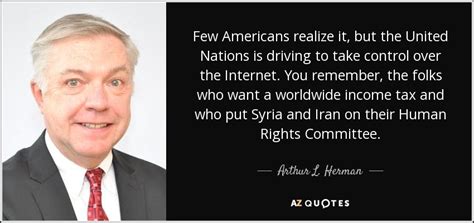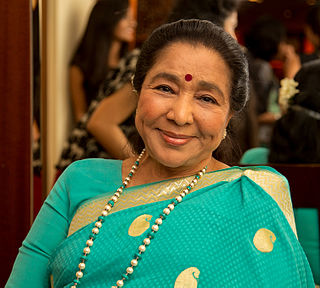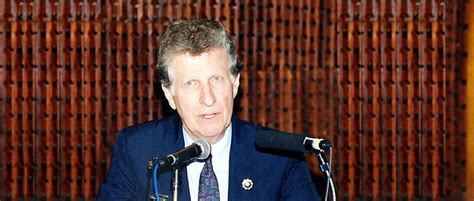A Quote by Arthur L. Herman
Gandhi wanted to meet with Churchill, his most bitter foe, when he visited London in 1931- but it didn't happen. Churchill wanted to go to India personally as prime minister in 1942 to negotiate a final settlement on India with Gandhi and the other nationalist leaders - but the fall of Singapore prevented it from happening.
Related Quotes
You have to remember that although Gandhi and Churchill only met physically once, their paths crossed again and crossed again all over the globe, from London and South Africa and India and back to London. In fact, I discovered that during the Boer War in 1899 they literally passed yards from each other on the battlefield.
When Prime Minister Neville Chamberlain's government fell in May 1940, the nation turned to Churchill. At last, his unique qualities were brought to bear on a supreme challenge, and with his unshakable optimism, his heroic vision, and above all, his splendid speeches, Churchill roused the spirit of the British people.
Mandela didn't end Apartheid in South Africa, the poor guy was in jail for 27 years, it was the African people that ended it but he was a symbol of their struggle. Or Gandhi in India, Gandhi was a great believer in non-violence and he was in and out of jail, but India became free. I think it's better to look at what people can do collectively and that's why it's so important to encourage them.
Indira Gandhi had been this very powerful, dominating, ambiguous mother figure. Ambiguous because she was tyrannical, she had imposed...she had suspended Indian democracy for a few years but she also was the woman who had defeated Pakistan in war at a time when most male politicians in India had secretly feared fighting that war, so that here in India even today Indira Gandhi is called by Indian nationalists the only man ever to have governed India.
My main aim in 'Gandhi' was to project him as the vanguard of non-violence. Nowhere in the world has a movement of non-cooperation sans violence received so much support from masses as Gandhi's movement in India did. He was, to a great extent, responsible for freeing his nation from the British Raj.
I think the most important thing that comes out of the meeting between Churchill and Roosevelt in early 1942 is a commitment on Roosevelt's part to fight Europe first. To struggle first against Germany and put Japan and the Pacific as a secondary theatre in the conflict. And this is what Churchill was after.
India and Burma have been close friends since the days we were struggling for independence. And I'm a great admirer of Mahatma Gandhi and Jawaharlal Nehru, and all those leaders of India's independence movement. I would like to believe the aspirations and hopes we shared in the past will continue to bind us in the future.
The plan to carve up British India was never approved of or accepted by Gandhi...who realised too late that his closest comrades and disciples were more interested in power than principle, and that his own vision had long been clouded by the illusion that the struggle he led for India's freedom was a nonviolent one.





































